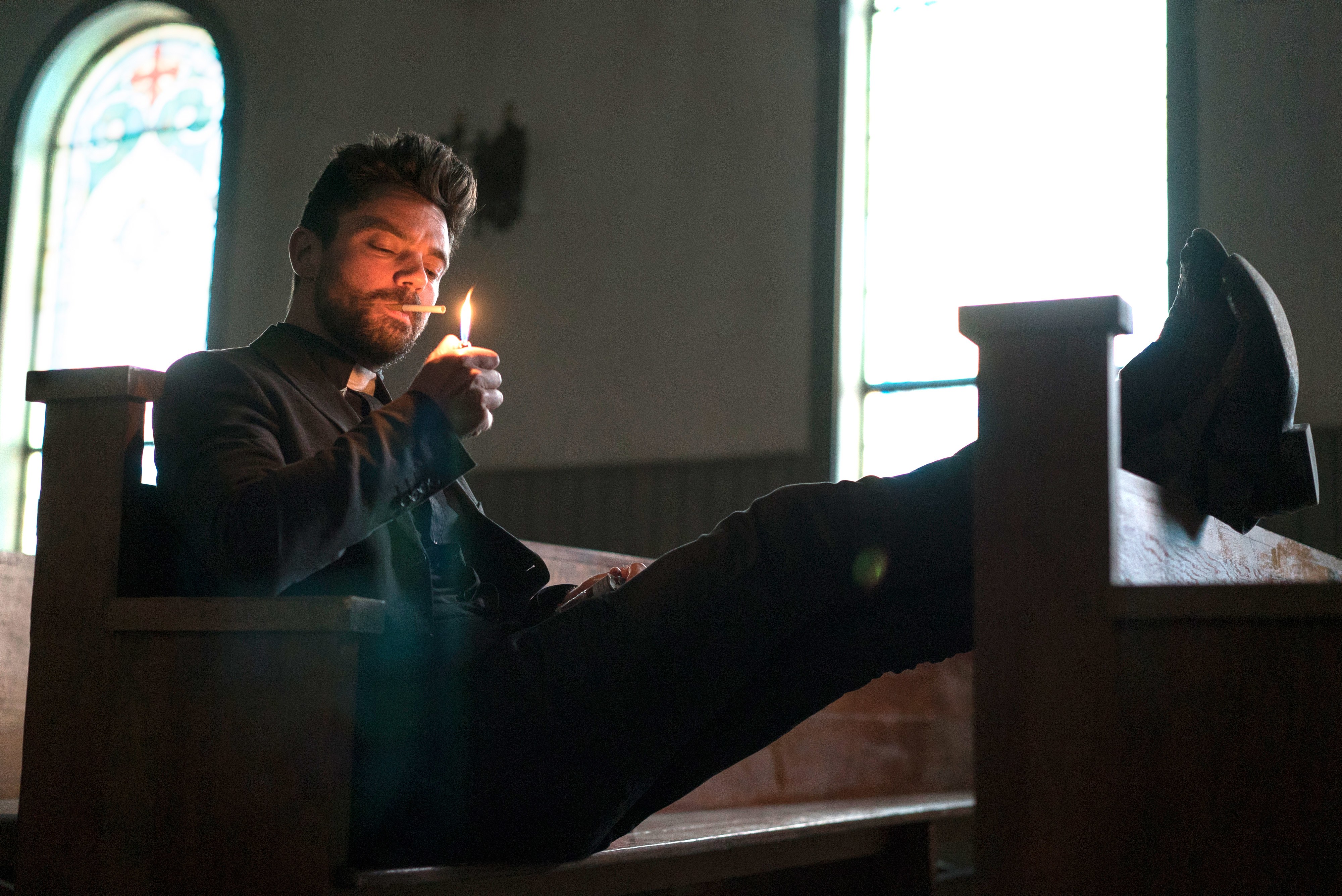In any story, the portrayal of a religious figure is a tricky proposition. If as an audience member, you’re anything like me, then you always doubt their motives, and you do so for some pretty damn good reasons.
Since time immemorial (or you know, at least as long as I’ve watched and read things), storytellers have employed the skin of a priest (or a nun, here and there) to juxtapose the flawed nature of humanity and the demands of the divine. In The Exorcist, for example, we saw a priest’s battle with his own demons in parallel with his battle of the literal demon possessing a young girl.
Other storytellers (I’m looking at both of you, Stephen King & Ryan Murphy), were quite simply all out of fucks to give when subtlety came knocking. Each of them looked at a flawed human claiming to speak on behalf of the almighty, and they saw evil itself, as it openly mocked humankind’s desire to believe. If you haven’t yet, take an afternoon and watch Silver Bullet and an episode or two of the first half of American Horror Story: Asylum, for tacit evidence.
When Preacher, the comic book series the AMC TV show is based on hit the scene in 1995, it was very aware of this unspoken trope. I didn’t read Preacher until long after that trope had become standardized, but it mattered little. Part of what makes the story stand on its own is that it never assumes that you as a reader are naive enough to make the mistake of trusting Jesse Custer.
So, right off the bat, we see Jesse as a broken man of little faith — collar notwithstanding. As the story progresses however, we quickly learn to trust in Jesse’s unique morality, if nothing else. A somewhat messy cocktail of 90’s American male bravado, Jesse’s heartbreak, suffering and unwavering sense of justice are key ingredients in the engine powering his soul. They are traits so deeply embedded, they transcend his faith (or lack thereof), and thus unsurprisingly, transcend the being that is eventually bonded to him: The half angel, half demon Genesis.
Translating a character like Jesse Custer to the screen was going to be a challenge no matter who tried (and many have), but in the first few episodes, the AMC show makes the deliberate decision to alter this seemingly innocuous, but hugely important element in favor of–I don’t know, something else. As the viewer, you know you definitely shouldn’t trust Jesse Custer, but not because he is inherently dishonest, or a difficult man to figure out. This is the biggest problem I have with Jesse Custer as played by Dominic Cooper. The fact that simply put, I have no idea what he’s all about.
While season 1 of AMC’s Preacher owes a lot to Ruth Negga’s portrayal of Tulip, and Joseph Gilgun’s spot-on Cassidy, Jesse Custer was an enigma even before anything unusual happened in the good preacher’s church. What does the collar even mean to him? Where does his faith lie, and if he has doubt, where is it buried?
Instead of attempting to answer these questions, the show gives us glimpses of Jesse and Tulip’s volatile relationship, which I think are supposed to remind us that this version of Jesse is in fact human.
It’s a testament to the show’s strong cast of wacky characters, creative visuals, and outrageous set pieces, that sometimes, you’re tricked into thinking Jesse Custer actually cares about something. Indeed, it’s no accident that some of Preacher‘s best moments come when it chooses to focus on any character other than him. Scenes featuring Tulip and Herr Starr are particularly inspired, but in the end, aren’t enough to save a show that is missing its very soul.
The core story being told in AMC’s Preacher demands that Jesse Custer go on a quest to find the almighty, and force him to explain just why the hell he’s done what he’s done. Had the show’s focus been more concerned with the titular character, a more interesting turn of events might’ve forced the show to push Jesse up against a wall, and ask him just why the hell he thinks he deserves such an answer.


